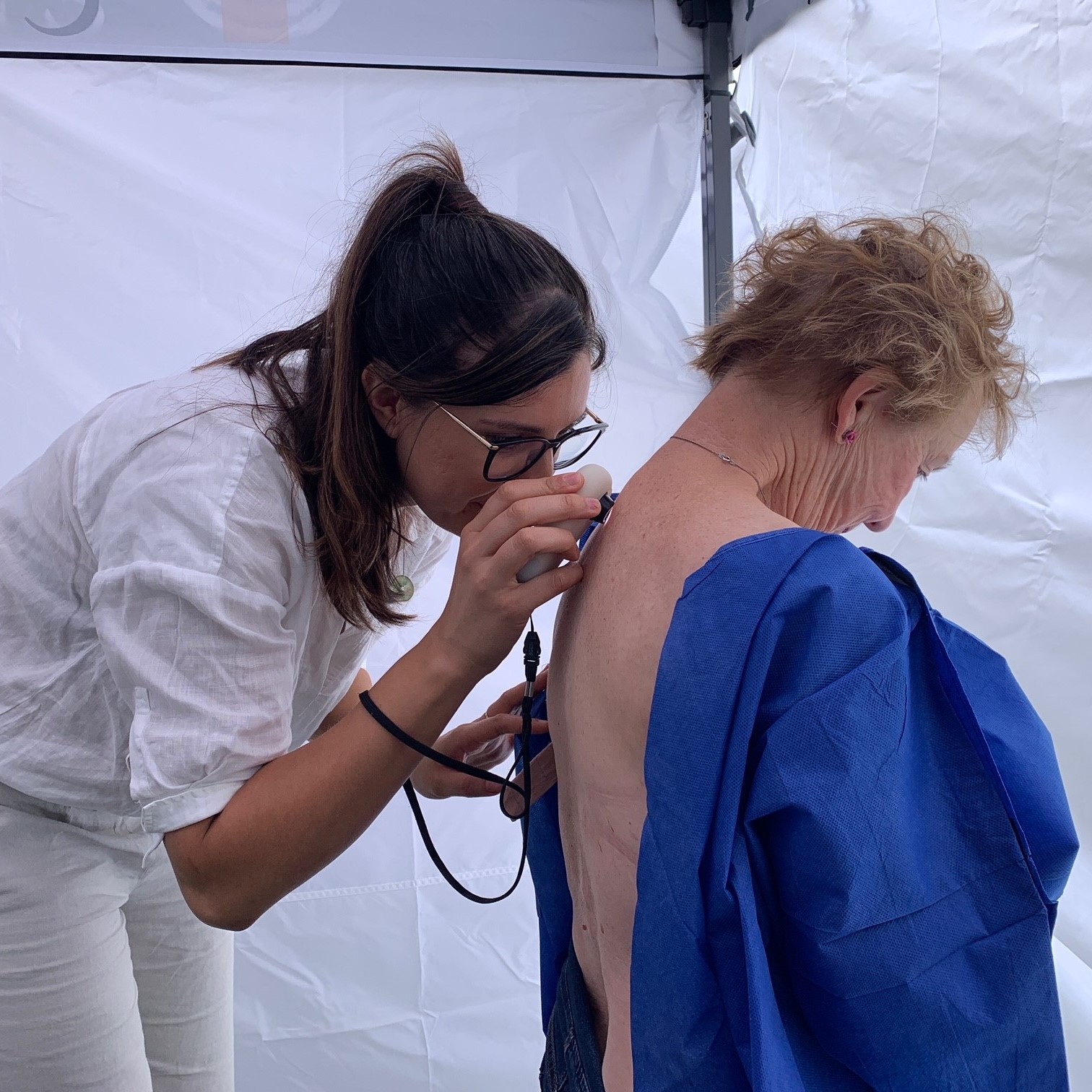
The world's first pop-up skin cancer clinic that uses artificial intelligence to help detect suspicious skin lesions has been launched at the Tour Down Under in Victor Harbor.
The free service, delivered by nurses, uses algorithms in conjunction with doctors' clinical expertise to detect skin cancer, which affects two out of every three Australians during their lifetime.
Thanks to a partnership between national health charity Skin Check Champions, the University of South Australia and The Hospital Research Foundation, the new nurse-led model delivered via pop-up clinics is being piloted to improve skin checks in regional South Australia where skin cancer rates are up to 31 per cent higher than people in metropolitan areas.
UniSA Professor in Cancer Nursing, Marion Eckert, says distance is a big disadvantage when it comes to skin screening services.
"Skin cancer prevention programs are under-funded and under-resourced, especially outside large cities, despite melanoma being the third most diagnosed cancer in Australia and melanoma killing four Australians every day."
Skin Check Champions CEO Scott Maggs says the world-class AI technology has performed as well as dermatologists, even outclassing them in some experiments, although control trials and more research are needed to better validate the algorithms.
"Our goal is to halve the number of Aussies who die from melanoma and increase the number of skin checks in Australia by 25 per cent by running a targeted AI-supported national skin check program," Maggs says.
The project involves training nurses to take high-quality lesion images that are triaged and conditionally diagnosed by artificial intelligence algorithms to see if they are cancerous. The results are verified by local GPs and, if required, patients are referred to dermatologists, most of whom are based in cities.
Residents living in regional areas will be able to access the service via nurse-led free pop-up clinics at local community events such as the Tour Down Under.
According to the Australian Institute of Health and Welfare, skin cancer costs the health system $400 million a year, with 66 per cent of Australians likely to get some form of skin cancer and more than 15,000 Australians (one every half hour) diagnosed with melanoma - the most aggressive form of skin cancer.
"More than 98 per cent of skin cancers can be successfully treated if they're found early, which is why getting checked is so important," Prof Eckert says.
The inaugural AI-powered skin cancer clinic was stationed at Warland Reserve from 19-21 January in collaboration with the Tour Down Under and Victor Harbor Art Show.
Notes for editors
The recent State of the Nation report noted that new technologies such as artificial intelligence are expanding the health system's capabilities for early detection and diagnosis.
Expert contacts for interview:






